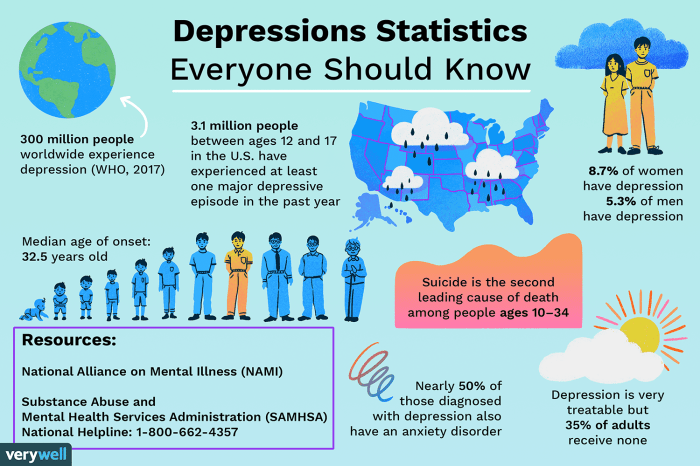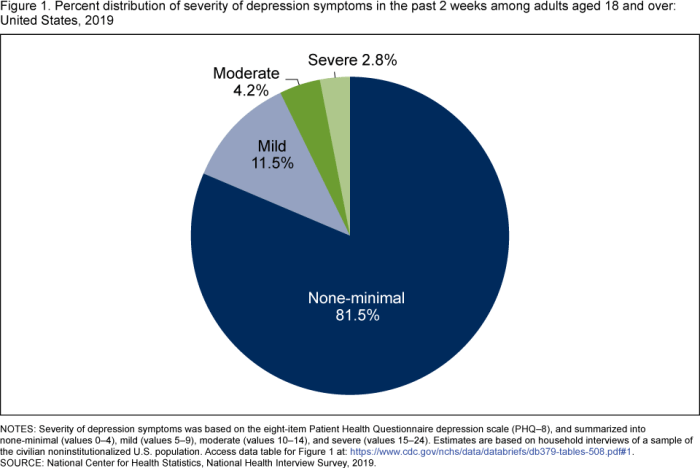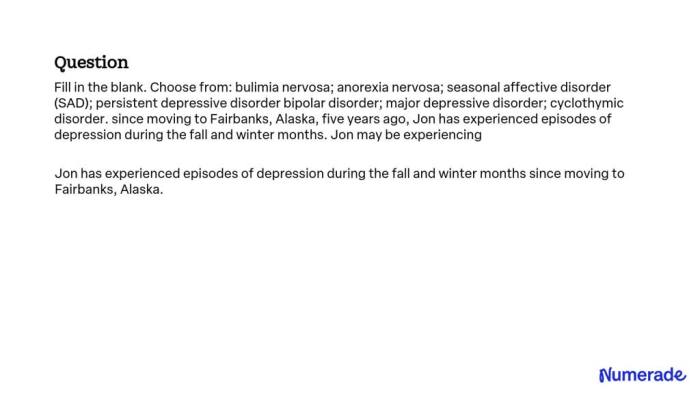Apollonia was diagnosed with major depressive disorder five years ago – Apollonia’s diagnosis of major depressive disorder five years ago marked the beginning of a challenging yet transformative journey. This in-depth analysis delves into her medical history, symptoms, potential causes, treatment options, and prognosis, providing a comprehensive understanding of this complex condition.
Apollonia’s experiences shed light on the multifaceted nature of depression, its impact on daily life, and the importance of seeking professional help. Her story serves as a testament to the resilience and hope that can emerge even in the face of mental health challenges.
Medical History

Apollonia was first diagnosed with major depressive disorder (MDD) five years ago. Her symptoms began gradually, with increasing feelings of sadness, hopelessness, and fatigue. Over time, her symptoms worsened, and she began to experience difficulty concentrating, sleeping, and eating. She also lost interest in activities she once enjoyed.Apollonia
sought professional help and was prescribed an antidepressant medication, which she has been taking consistently since then. She has also participated in cognitive-behavioral therapy (CBT), which has helped her to develop coping mechanisms and change negative thought patterns.Apollonia has been hospitalized twice for depression, once in the year following her diagnosis and again two years later.
During these hospitalizations, she received intensive treatment, including medication management, therapy, and electroconvulsive therapy (ECT).
Symptoms

Apollonia’s symptoms of depression have varied in severity over time. During her most severe episodes, she has experienced:
- Persistent feelings of sadness, hopelessness, and emptiness
- Loss of interest in activities she once enjoyed
- Difficulty concentrating and making decisions
- Changes in appetite and sleep patterns
- Fatigue and loss of energy
- Feelings of worthlessness and guilt
- Suicidal thoughts and behaviors
Causes and Risk Factors: Apollonia Was Diagnosed With Major Depressive Disorder Five Years Ago

The exact cause of Apollonia’s depression is unknown, but it is likely due to a combination of genetic, environmental, and psychological factors.
-
-*Genetic factors
Depression can run in families, suggesting that there may be a genetic component to the disorder.
-*Environmental factors
Stressful life events, such as trauma, loss, or financial problems, can increase the risk of developing depression.
-*Psychological factors
Certain personality traits, such as low self-esteem and perfectionism, can also increase the risk of depression.
Apollonia’s demographic characteristics, such as her age, gender, and socioeconomic status, also increase her risk of depression. Women are more likely to experience depression than men, and people who are younger or who have lower socioeconomic status are also at increased risk.
FAQ Section
What are the common symptoms of major depressive disorder?
Symptoms may include persistent sadness, loss of interest in activities, changes in appetite or sleep, difficulty concentrating, feelings of worthlessness or guilt, and thoughts of self-harm.
What are the potential causes of depression?
Depression can result from a combination of genetic, environmental, and psychological factors, including stressful life events, trauma, and certain medical conditions.
What are the treatment options for depression?
Treatment options include psychotherapy, medication, lifestyle changes, and support groups. The specific approach is tailored to the individual’s needs and preferences.